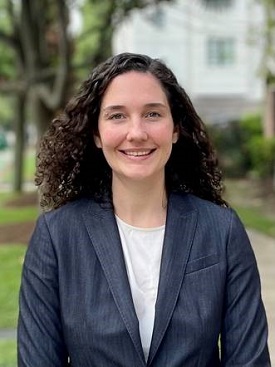Elizabeth Moss, Ph.D.

Elizabeth Moss, Ph.D.
Assistant Professor
Oregon Health & Science University
3181 S.W. Sam Jackson Park Road
Portland, OR 97239
Mail Code: L459
Email: mosse@ohsu.edu
Research
Sensory perception is the mechanism through which we engage with the rich tapestry of physical sensations, sights, sounds, tastes, and scents that shape our reality. Remarkably, though, perception is not fixed. Instead, it is exquisitely adaptable, influenced by our expectations, internal states, and past encounters. This intriguing flexibility is a hallmark of sensory circuits which enables them to dynamically respond to changing circumstances, and it relies on the innate adaptability of neurons, circuit-level modulation, and higher-order, top-down neural feedback. While this flexibility is adaptive, it means that perception offers an unreliable representation of the state of the world inside and around us. Optical and auditory illusions, the persistence of chronic pain, habituation, sensitization, and the effects of selective attention are examples of how our perception can be distorted, and, at the same time, they provide insight into how neural circuits process sensory information in the first place.
The Moss Lab is dedicated to unraveling how neural circuits transform sensory data in diverse contexts, giving rise to a range of perceptual experiences that drive contextually-appropriate behavior. To explore these phenomena, we employ the mouse olfactory system as a powerful model, allowing us to map out the function of specific neural circuits from sensory input to behavioral output. A sophisticated arsenal of viral and genetic manipulations, in vivo imaging, electrophysiology, and behavioral assays, allow us to ask questions such as:
- "How does the intrinsic adaptability of cells in the olfactory bulb enhance our ability to distinguish between different odors?"
- "What is the role of neuromodulation in controlling the flow of sensory information from the olfactory bulb to the cortex?"
- "How are memories of odors retained within the olfactory bulb long after the odors have dissipated?"
Our overarching goal is to define generalizable circuit mechanisms responsible for transforming sensory information at the earliest stages of olfactory processing in order to decipher how circuit function is precisely tuned to meet ever-changing demands. This research will not only provide valuable insights into the foundations of healthy sensory function but it will also illuminate the origins of sensory dysfunction across various disease states. Our ultimate aspiration is to leverage this knowledge to develop translational, circuit-based approaches for treating neurological diseases, forging a path towards improved healthcare through a deeper understanding of the nuanced world of sensory perception.
Research Team
Priscilla Ambrosi Ph.D.

Priscilla Ambrosi